Suspended local police officers paid $24M over past decade
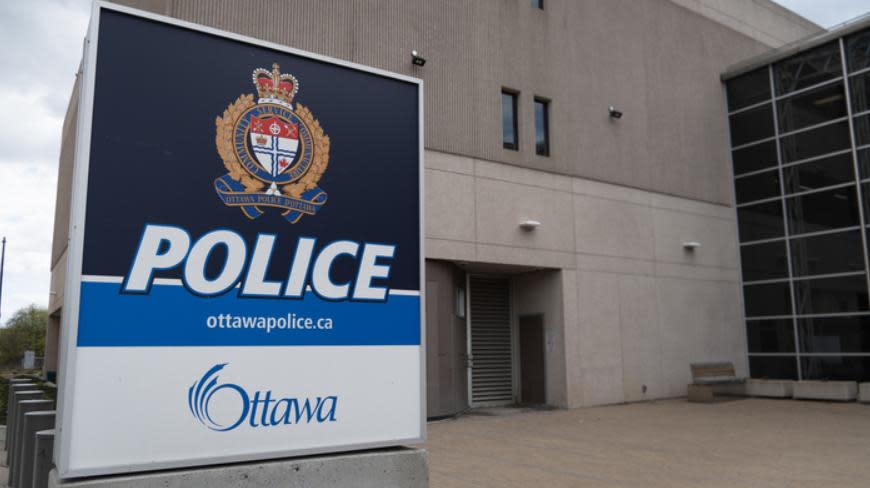
- Oops!Something went wrong.Please try again later.
Police suspensions across eastern Ontario have cost taxpayers around $24 million over the past decade — nearly a fifth of all salaries for officers taken off the job in the province while under investigation for alleged wrongdoing.
CBC News took a deep dive into the longstanding practice of paid suspensions across 44 police departments in Ontario, and pegged the total cost around $134 million since 2013.
Calculations were made based on publicly available data, cross-referenced against Ontario's Sunshine List and labour information from Statistics Canada.
The eastern Ontario data includes nearly two dozen local forces and Ontario Provincial Police (OPP) detachments. Collectively, their cost of paid suspensions represents close to 18 per cent of all amounts spent across Ontario.
Those municipally-run law enforcement departments are:
Ottawa Police Service.
Kingston Police.
Cornwall Police Service.
Brockville Police Service.
Smiths Falls Police Service.
Belleville Police Service.
Gananoque Police Service.
Peterborough Police Service.
Cobourg Police Service.
Deep River Police.
Port Hope Police Service.
Kawartha Lakes Police Service.
OPP news releases and subsequent media reports provided data regarding suspensions from the following eastern Ontario communities: Alexandria, Bancroft, Grenville, Lanark, Leeds and Northumberland counties, Quinte West, Bracebridge and a more generic east region.
Ottawa police suspensions
Thirty-five Ottawa Police Service officers have been suspended since 2013 at a price tag of nearly $11 million — by far the most expensive in the region.
It also has the biggest workforce in the group with about 1,500 sworn officers.
"It's frustrating that you have an officer that's off, not being productive while facing these cases, and it's costing the taxpayers and costing the police service," said former Ottawa police chief Charles Bordeleau, who served in the role from 2012 to 2019 and now works as a consultant at StrategyCorp.
The 35 Ottawa police suspensions over the decade represent about 2.3 per cent of the current, active workforce.
Based on the latest information, it appears four officers are currently suspended in Ottawa: Supt. Mark Patterson, Const. Haidar El Badry, Const. Goran Beric, and another whose name is not disclosed.
Patterson, the highest-ranking suspended officer, was charged with sexual assault and breach of trust for allegedly grooming and sexually assaulting a woman he recruited to the force over four years.
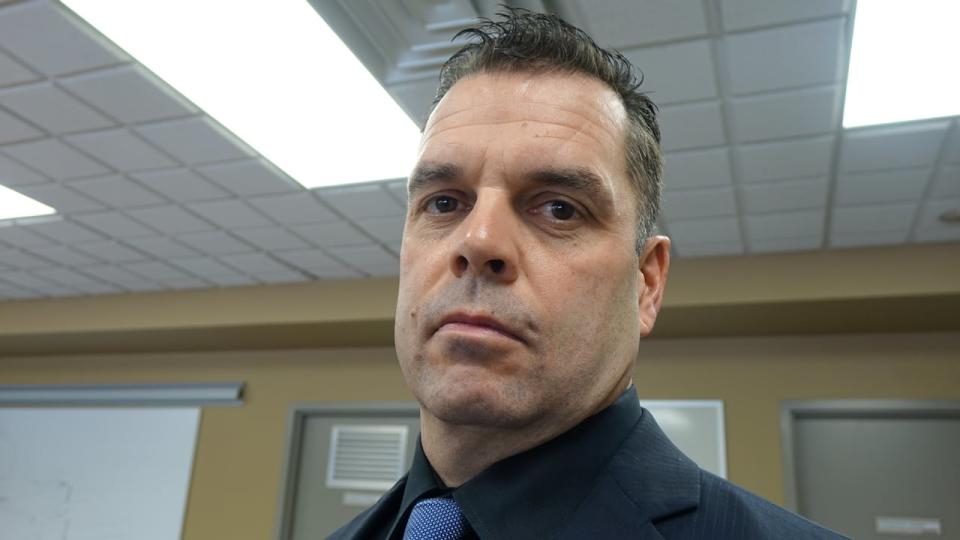
Supt. Mark Patterson, seen here in 2018, is one of four Ottawa police officers currently under suspension according to the latest data. (Kristy Nease/CBC)
Patterns in the eastern Ontario data appear to mirror the provincial highlights.
Allegations of gender-based violence, including intimate partner violence, sexual assault and sexual harassment, account for about a third of all cases.
One of the highest-ranking officer suspensions in the past decade was in Ottawa.
Deputy chief Uday Jaswal resigned in February 2022 after collecting more than $500,000 of pay over nearly two years since being suspended in March 2020 over allegations of sexual harassment.
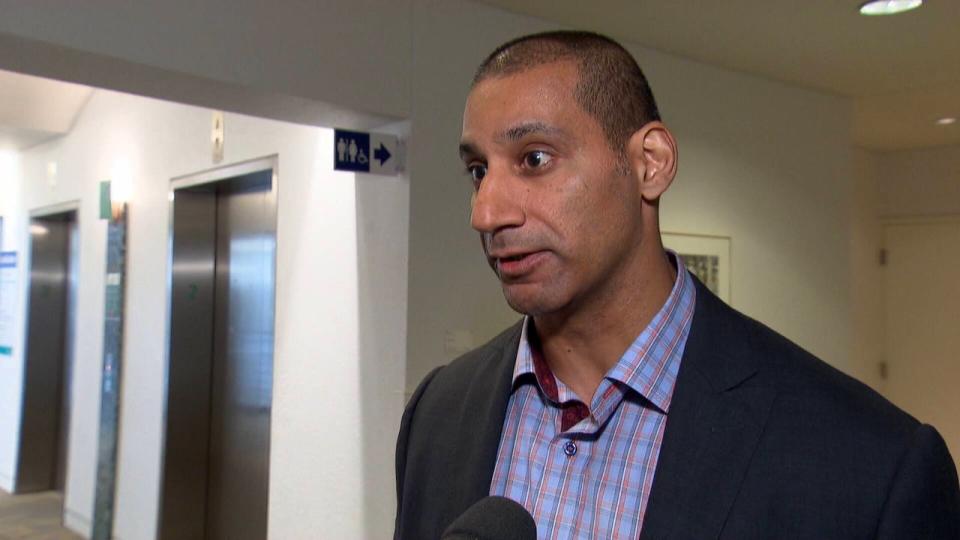
Ottawa deputy police chief Uday Jaswal in a 2019 file photo. He resigned after collecting more than half a million dollars in pay while under suspension. (CBC)
Jaswal was hired by Ottawa police in 1995 and quickly rose through the ranks before leaving in 2016 to serve as deputy chief for the Durham Regional Police Service east of Toronto.
He then returned to Ottawa two years later to serve as deputy chief, but less than a year later, allegations against him came to light, as did a Durham investigation into allegations of corruption.
"There was tremendous scrutiny because it was … a very high-ranking individual," said Sandy Smallwood, who served on the Ottawa Police Services Board for a decade.
Smallwood resigned in February 2022 and saw a number of officers suspended during his tenure.
"They weren't very frequent, but they were always very controversial."
Smallwood said his goal was always trying to maintain public trust, but he called it "a high-stakes game" because the public is scrutinizing officer pay while suspended officers face a "big black mark on their career."
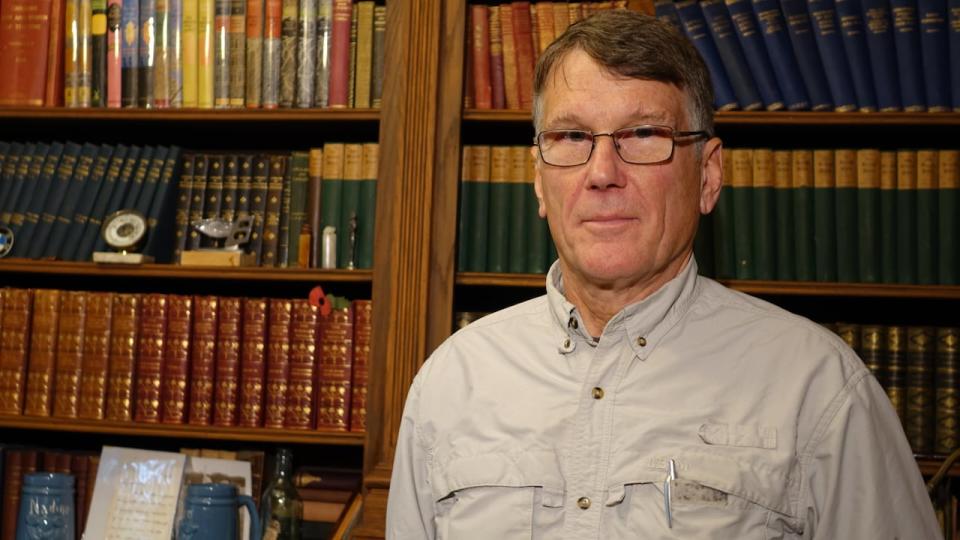
Sandy Smallwood, who sat on the Ottawa Police Services Board for a decade, says officers accused of wrongdoing should face immediate suspension without pay. He added that they can have pay returned retroactively if cleared. (Jean Delisle/CBC)
Only a police board can suspend chiefs and deputy chiefs, while the police chief can suspend all other officers.
Other than Jaswal, one of the controversial suspensions that stand out for Smallwood were the three officers implicated in a tow-truck kickback scheme.
Smallwood said it was unsettling it took two years to move through the courts.
The majority of the charges against the three officers were eventually either withdrawn or stayed and they have since resigned.
Suspensions without pay
Until recently, Ontario was the only jurisdiction in Canada where suspended officers were by default entitled to their full salary while they awaited their fate.
The median length of suspension for all officers across Ontario was 553 days, or about a year and a half.
Police chiefs in Ontario have long called for more authority to fire problematic members and suspend officers without pay, as is the policy in other jurisdictions in Canada.
"The public was frustrated," said Bordeleau. "The chiefs of police have been frustrated."
Bordeleau declined to pinpoint how many suspensions he made during his time.
"It's not a decision that's taken very lightly," he said, adding that given the opportunity, he would've wanted to suspend members without pay.
"I think it's important also to remember that the vast majority of officers do tremendous work, yet it's only a small number who are under investigation and an even smaller number who are actually charged with a criminal offence."
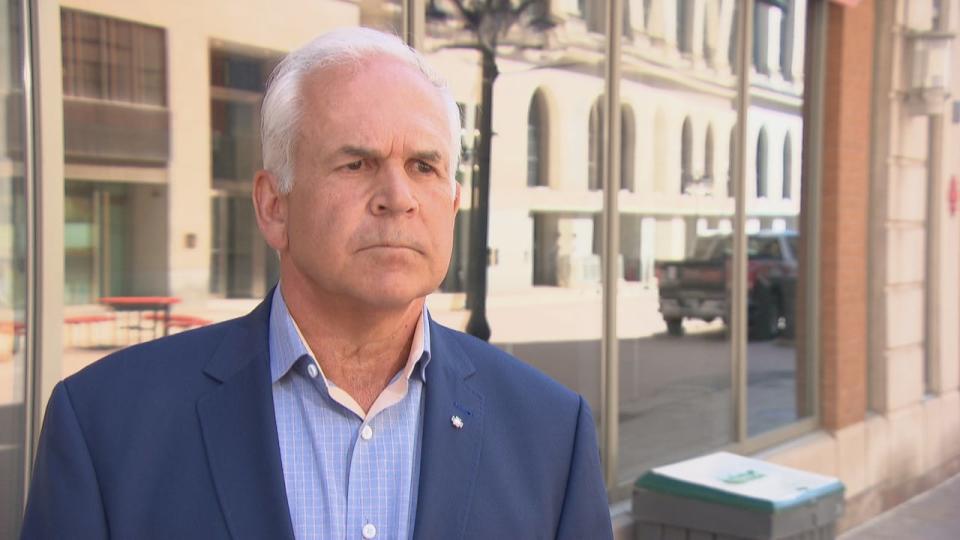
Former Ottawa police chief Charles Bordeleau says it's frustrating for the public and police chiefs to see suspended officers collecting pay for years due to provincial legislation. (CBC)
Bordeleau says the new April 1 regulations to suspend an officer without pay are strict.
One of the conditions attached is that the officer has to be charged with a "serious offence," which in his view hasn't been fully defined.
It also needs to happen while an officer is off-duty.
Police unions have long stressed the importance of giving officers under scrutiny a fair chance, which includes a presumption of innocence in all misconduct and criminal investigations.
Smallwood said officers need to be held to a higher standard and they can always be paid retroactively if cleared.

